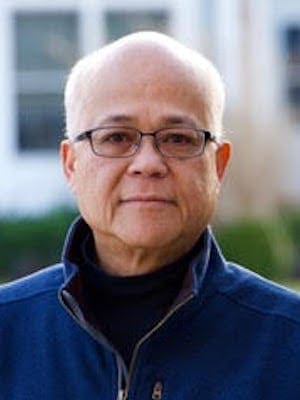An often-sung hymn during this season is “I Heard the Bells on Christmas Day,” adapted from a poem by Henry Wadsworth Longfellow.
The murder of two New York Police Department officers in Brooklyn, New York, that has shaken our nation, which is still reeling from the recent police-related killings in Ferguson, Missouri, and Staten Island, New York, brought one of the hymn’s verses to mind.
“And in despair I bowed my head: ‘there is no peace on earth,’ I said, ‘for hate is strong, and mocks the song, of peace on earth, good will to men.'”
It seems that our society is in the grip of a resurgence of great fear, hatred and violence.
Our 24/7 broadcast media has focused on the violence and woundedness that continue to infect our society and the world.
I was reminded during worship on the fourth Sunday of Advent that the birth of Jesus dawned also in a setting that was in the grip of fear, hatred and violence.
Rome was the imperial power in the world, wielding absolute and tyrannical control over its subjects.
The empire’s violent impulses used slaves, including Hebrews, as entertainment in brutal blood sports.
Joseph, Mary and Jesus were in hiding soon after his birth, escapees from a genocidal governor (Matthew 2:13-23). The good news entered a world also full of bad news and ugliness.
As I have been trying to struggle with the ugliness that still remains in the world, the story of Jesus’ healing of the leper in Matthew 8:1-4 has caught my attention.
The Bible speaks about leprosy often. The Old Testament mentions it more than 50 times, and the New Testament mentions it at least a dozen times.
Leprosy has terrified humanity since ancient times. The disease leaves the infected person severely deformed and unsightly.
Leprosy, being untreatable by human standards during that time, became the symbol of everything that was ugly and was understood as punishment of sin.
This distorted understanding led to people being shunned, stigmatized and driven out from or marginalized in their own communities. The sight of a leper during those times was enough to cause hysteria.
Alas, that same response still exists to this day.
Hysteria over disease is not new. History shows that responses to epidemics often lack rational or scientific bases.
The Ebola epidemic in West Africa that caused a few U.S. health workers to come home with the disease is another case in point.
It caused hysteria and fear. And where there is fear, people are demonized, stigmatized, shunned and ostracized.
Panic and fear of contagion led, in 1894, to the establishment of a “home” for the humane care of leprosy patients in Louisiana.
With leprosy, we ended up with laws that not only isolated the ill but stigmatized them and their families.
Fear brings to the surface the many dark sides of our human condition.
It breeds many horrific offspring – hate, bigotry, prejudice, narcissism and the will to power. Fear leads a people to enslave another.
After the bombing of Pearl Harbor, our country – gripped by fear – arrested all Japanese Americans and sent them to internment camps.
They were Americans, and many of them were pillars of our Asian American Baptist community.
The fear of the different led Hitler to unleash the greatest genocide of modern history – the Shoah, the methodical murder of 6 million Jews from 1941-45.
The Advent waiting for Christians ends with the lighting of the Christ candle. In a few days, all that waiting will be consummated, as we celebrate the birth of Jesus, the Christ child.
What is the voice of the church in our troubled time? Where is it?
The real ugliness in the world is fear. Fear is the mother of hate, and hate has many offspring – slavery, avarice, genocide, bigotry, violence.
Jesus touched the untouchable, the leper, pronouncing that the real ugliness in the world is not leprosy but fear – fear that is borne out of its blindness to God’s love.
The first words of the angels’ announcement are “Fear not!” (Luke 2:10).
In one way, the words acknowledge the presence and reign of fear in the world. In another, it is an audacious rebuke and subjugation of its illusory power.
Fear cannot drown out the words of the Prince of Peace. They are the very words the world needs.
As for us, we are called to be makers of “shalom,” makers of peace.
We are to be proclaimers and embodied ambassadors of Christ’s love – the sacrificial love that came not to condemn the world, but to save it; that expresses itself in the righting of wrongs; and that continues to call each one of us to participate in, and physically commit to, the ongoing work of love of the Holy Spirit in the world.
 Elmo D. Familiaran is the associate regional pastor and area minister for the American Baptist Churches of New Jersey. A longer version of this column first appeared on the ABC-NJ website. You can follow him on Twitter @efamiliaran.
Elmo D. Familiaran is the associate regional pastor and area minister for the American Baptist Churches of New Jersey. A longer version of this column first appeared on the ABC-NJ website. You can follow him on Twitter @efamiliaran.
Elmo Familiaran is a pastor, writer and practitioner in the mission and purpose of the church in the world. Ordained in the American Baptist Churches, USA, he is a 39-year veteran in pastoral ministry, in ecumenical and cross cultural engagement, and executive leadership in both national and regional denominational settings.

